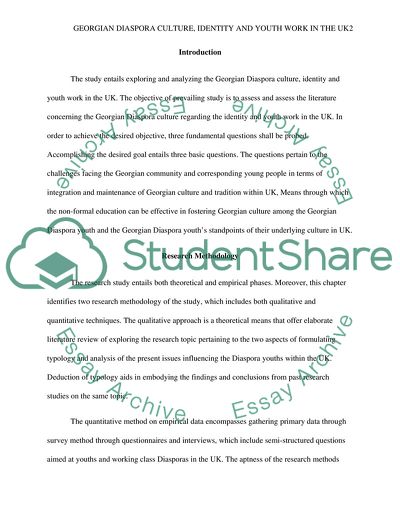Cite this document
(Georgian Diaspora Culture and Youth Work in the UK Research Paper Example | Topics and Well Written Essays - 3000 words - 2, n.d.)
Georgian Diaspora Culture and Youth Work in the UK Research Paper Example | Topics and Well Written Essays - 3000 words - 2. https://studentshare.org/sociology/1874480-georgian-diaspora-culture-identity-and-youth-work-in-the-uk
Georgian Diaspora Culture and Youth Work in the UK Research Paper Example | Topics and Well Written Essays - 3000 words - 2. https://studentshare.org/sociology/1874480-georgian-diaspora-culture-identity-and-youth-work-in-the-uk
(Georgian Diaspora Culture and Youth Work in the UK Research Paper Example | Topics and Well Written Essays - 3000 Words - 2)
Georgian Diaspora Culture and Youth Work in the UK Research Paper Example | Topics and Well Written Essays - 3000 Words - 2. https://studentshare.org/sociology/1874480-georgian-diaspora-culture-identity-and-youth-work-in-the-uk.
Georgian Diaspora Culture and Youth Work in the UK Research Paper Example | Topics and Well Written Essays - 3000 Words - 2. https://studentshare.org/sociology/1874480-georgian-diaspora-culture-identity-and-youth-work-in-the-uk.
“Georgian Diaspora Culture and Youth Work in the UK Research Paper Example | Topics and Well Written Essays - 3000 Words - 2”. https://studentshare.org/sociology/1874480-georgian-diaspora-culture-identity-and-youth-work-in-the-uk.


